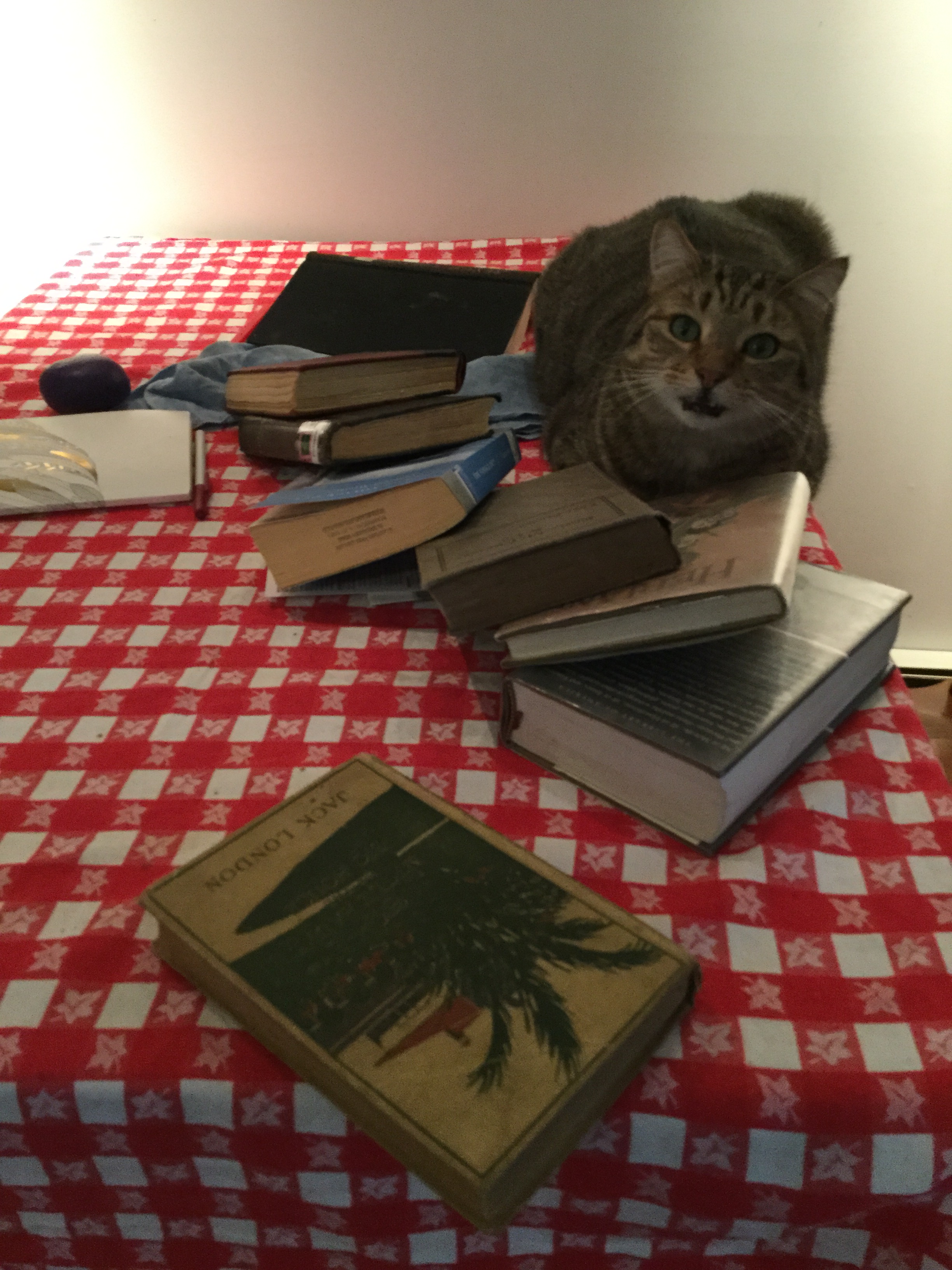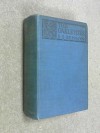brokenbiscuits
Books of 1915 (Part Five)

The Rainbow by D.H. Lawrence
I loved Sons and Lovers, and who doesn’t love “The Rocking Horse Winner”? So I figured I would like this one too. The Rainbow follows several members of a family through different generations. They live on a farm in the East Midlands of England. There was something incredibly irritating about this novel. I couldn’t quite put my finger on it, but as I was reading it, I was inwardly wailing, “Wheeeennn will this be oooover??” There were a lot of men who didn’t know how to interact with others or have real relationships, especially with women, which I guess is stark realism but was frustrating for me to read. Also, I have no problem with florid prose per se, just this wasn’t doing it for me. One highlight was a grisly alcoholism-related fatal farming accident.
The last family member was a young woman, Ursula, who has a bleak and depressing relationship with another women. You would think I would like that part but I think it was too dark for me. Then she has a bleak and depressing job as a teacher at a brutal school, which degrades Ursula so much that at one point she just loses it and starts hitting a student. And she has a bleak and depressing relationship with a man. Apparently I have blocked out what happens in the end.
Luckily, when I complained to my brother about this elusive annoying quality in The Rainbow, he told me that Kate Millett had gotten to the bottom of D.H. Lawrence in her legendary book Sexual Politics. So, here is what your auntie Kate has to say:
Millett explains that Lawrence is suffering from womb envy, which I would back her up on, and that the “new woman” (like Ursula) intimidates him. She points out that the chapter where Ursula has an affair with another woman is called “Shame,” which I actually didn’t even notice. (Sometimes I am so steeped in my own attitude that I can’t even imagine what the author intended, which has advantages and drawbacks.) Millett also paid attention to what happened at the end of the novel, unlike me, which was: Ursula fails her university exams and becomes a contented housewife. Millett chalks up the irritating quality of The Rainbow to an underlying sexist oinker agenda. BTW, I am not supposed to be reviewing the books of 1969, but Sexual Politics is nothing like what I expected. I had no idea that it was mostly literary criticism!
Anyway, I’m not sure if I can handle Lawrence’s sequel, Women in Love, but I am intrigued by the 1922 offering Aaron’s Rod. With a title like that, what could go wrong?
Still to come-Unread
The Voyage Out by Virginia Woolf
I know, I know; why didn’t I read this one? I think I was a little intimidated so I was putting it off. I know Virginia Woolf is super famous and this is probably actually the best book of 1915, so I really will read it.
Psmith, Journalist by P.G. Wodehouse
I am perpetually one book behind in the Psmith series, so I haven’t read this one yet. Here is my brother’s review:
“In the third novel about Mike and Psmith they visit New York, where Mike prepares for a cricket match. Psmith befriends Billy Windsor, the sub-editor of the children’s journal Cosy Moments. Billy is fed up with the treacly material it is his job to edit, so when the editor goes on vacation Psmith persuades Billy to revamp the journal. The current contributors are all fired and Cosy Moments features a new column about the pugilist Kid Brady and a hard-hitting series about tenement slumlords. It is unusual for PG Wodehouse to focus on the dark underbelly of capitalism, but he does so in his own way. When a criminal syndicate pressures Psmith to stop publishing the tenement exposé, he declares “Cosy Moments cannot be muzzled.” It is nice that Mike is not the slightest bit jealous of the relationship between Psmith and Billy, and at the end of the novel Mike and Psmith return to England, where they conclude their saga in Leave it to Psmith, a novel of 1923.”

The Oakleyites by E.F. Benson
Thanks heavens my brother read and reviewed this book for me too! As follows:
“The Oakleyites chronicles the lives of the leisure class of the seaside village of Oakley, apparently based on Rye, where E.F. Benson lived. Here we see the Dante classes, picture exhibitions and amateur piano recitals encountered subsequently in his more famous Mapp and Lucia novels. Among the Oakleyites are three middle-aged sisters, each a devotee and exponent of vegetarianism, Yoga and Christian Science, respectively. Their rivalries are as funny as anything Benson ever wrote. The difference from Benson’s later novels is that the Queen of Oakley society, Dorothy Jackson, is a romantic heroine. She falls in love with the author of facile novels about Marchionesses when he moves to Oakley with his mother on account of her health. Dorothy dreams of inspiring him to write a really worthwhile novel (apparently this was a very common aspiration a hundred years ago). I wanted to give Dorothy a little hint: “girlfriend, there’s a reason this guy is still living with his mother at the age of thirty-five!” But Benson apparently felt he could not tell the real story...”

Vainglory by Ronald Firbank
I got this out of the library but it’s due back soon. Firbank’s Wikipedia page says he was an openly gay man who was very inspired by Oscar Wilde, and “an enthusiastic consumer of cannabis.” So that sounds like fun!

The Little Lady of the Big House by Jack London
This is about a love triangle. I bought this novel but, I’m going to be completely honest here, I will probably never get around to reading it. 1916 beckons!
Will Never Read, and why
The Genius by Theodore Dreiser
The Titan was tough going last year. As described on the Wikipedia page, The Genius is a semi-autobiographical novel about a man who is unable to remain faithful and his “affair” with a teenage girl and then his wife dies in childbirth. I just couldn’t face it.
Boon by H.G. Wells
This is a satirical novel written under a pseudonym in which Wells lampoons his former friend Henry James. I was interested to read about it, but didn’t want to read the actual book.
The Return of Tarzan by Edgar Rice Burroughs
Look, there are over 20 more of these books to come. I’m sure I’ll read another one at some point.
That's all! See you in 1916!










 1
1



